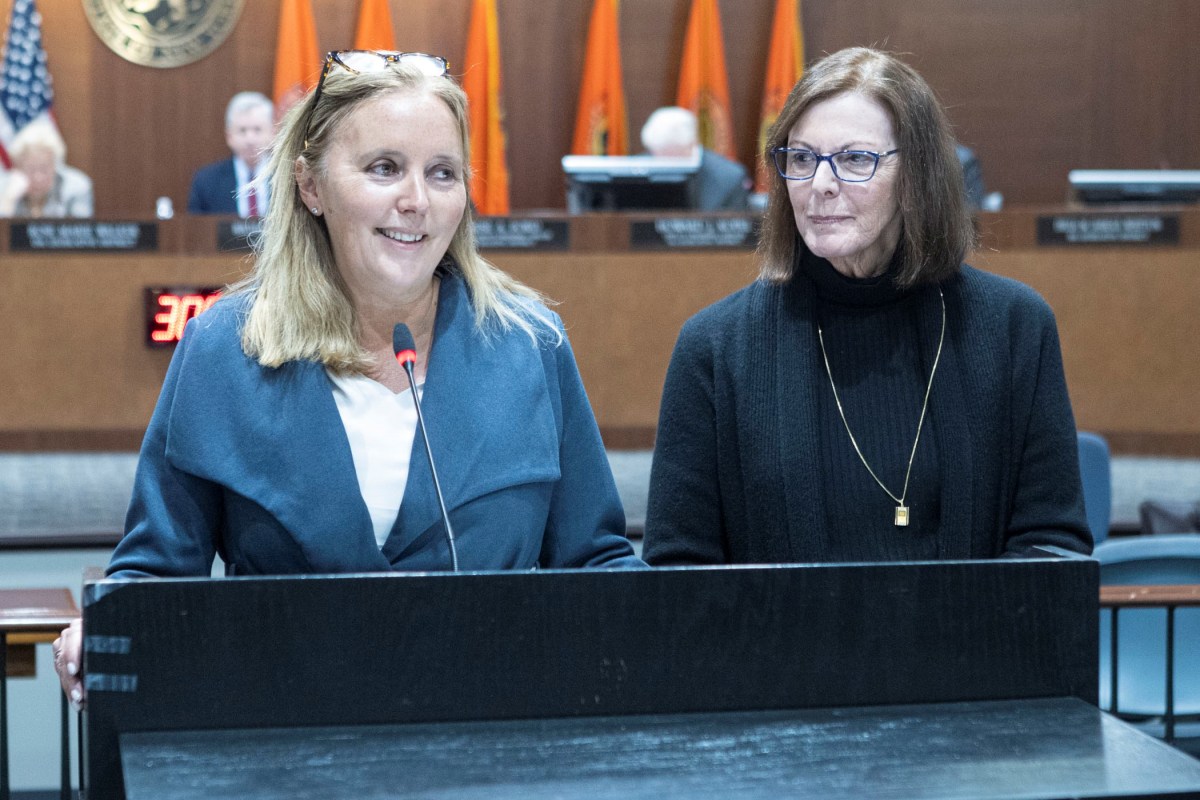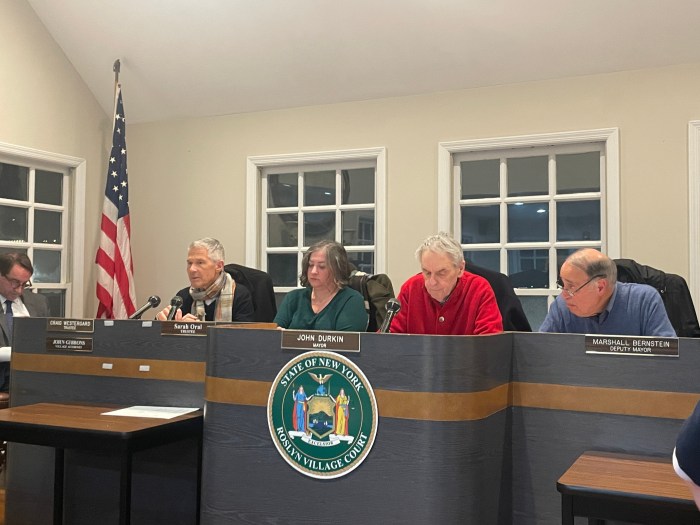Glen Cove’s Corinne Kaufman suffered a tragedy no grandparent should do: burying her teenage granddaughter after an accidental drug overdose.
But Kaufman channeled her grief into action, teaching other local students – not far in age from her granddaughter – the harm and risk of taking drugs off the street and how to prevent deaths through overdose prevention training.
“My family wants to have a mission about saving lives,” Kaufman said. “[But it also] helps all of us who are surviving this loss to feel like we can have something that’s more positive come out of this tragedy by sharing it with other people.”
Kaufman’s granddaughter, Paige Gibbons, died of an overdose in 2022 after accidentally consuming fentanyl when she believed she was taking a Percocet at a friend’s sleepover. She was 19.
Kaufman’s granddaughter was an honor student seeking to become a doctor, but above all Kaufman said she was an empathetic and compassionate person. She devoted herself to advocacy for suicide prevention, was a local ambulance driver, donated cpr instruction equipment to her school and taught underprivileged children how to swim.
“Here’s somebody with all the potential in the world, and she made one mistake by taking a fake Percocet,” Kaufman said.
The last time Kaufman saw her granddaughter was a weekend they spent together cooking and enjoying their company – as Gibbons was raised seven hours away in a suburb outside Rochester.
Kaufman’s pursuit of advocacy was kick-started when local Nassau County Legislator Delia DeRiggi-Whitton invited her to speak in front of the legislature and share her granddaughter’s story. Kaufman did and advocated for the implementation of fentanyl test strips throughout the county.
After speaking in front of the legislature, Kaufman started reaching out to local superintendents to offer drug and overdose prevention education to students.
“What better place to start than by making people aware,” Kaufman said.
Kaufman launched the Families Against Fentanyl campaign, which distributes Narcan kits to middle school and high school nurses. She also hosts Narcan training workshops throughout communities.
She partners with local school districts, including Glen Cove and Roslyn, to not only educate students on the risks but to equip them with lifesaving skills if an overdose does happen.
Kaufman stressed the importance of educating high school students, especially seniors who are about to be out in the real world for the first time alone and may face decisions around drugs.
Harm reduction methods that Kaufman advocates for are fentanyl test strips and naloxone, or Narcan. Both are methods, she said, are meant to prevent deaths.
Fentanyl test strips are used to test drugs for the presence of fentanyl. They are used by mixing a small amount of the drug with water and then placing the test strip in the water.
While this method is not a guarantee to detect fentanyl as it can sometimes not be distributed equally throughout the drug, it lowers the chances of an accidental fentanyl overdose.
Naloxone, or commonly referred to by its brand name Narcan, is a nasal spray that is administered to an individual experiencing a drug overdose. This can rapidly reverse the effects of an overdose, oftentimes bringing a person back to consciousness, but the National Insititute on Drug Abuse still advises calling 911 in the event of an overdose in case the naloxone is not effective or the individual needs further medical attention.
“Everyone is vulnerable, whether you think you are or not,” Kaufman said. “It just takes one tiny grain of fentanyl to lose your life.”
But Kaufman said her program’s momentum has been slower than she’d like. She attributed this to stigmas around teaching students harm prevention and hesitancy for schools to partake.
But Kaufman wants to do even more, including the advancement of mental health support for students due to an association between mental health and drug use.
If it were up to Kaufman, harm reduction and drug education would begin in the elementary schools, she said, using age-appropriate lessons to teach them of the risks. She said speaking to educators she’s found that these lessons are necessary as at risk student behavior can already begin to be detected.
Nassau County has acquired nearly $100 million in opioid settlement funds that could go towards these projects, but could be awarded up to $180 million.
Published reports show the county had spent $3.01 million of its opioid settlement funds, amounting to about 3.15% of the $95.5 million the county had received before its latest increase.
Kaufman and others have advocated for this money to be spent on various programs to combat the opioid crisis existing in Nassau County’s own backyard.
“There are so many great programs that need these funds,” Kaufman said.



































